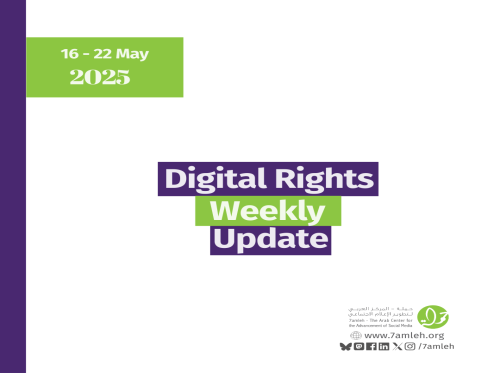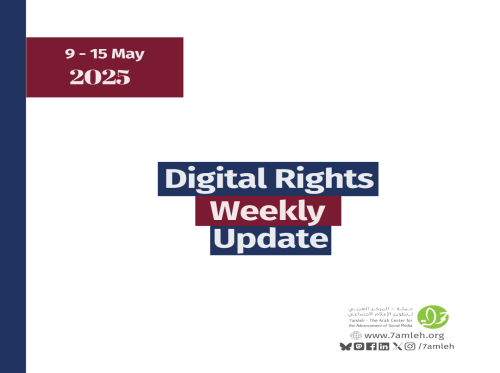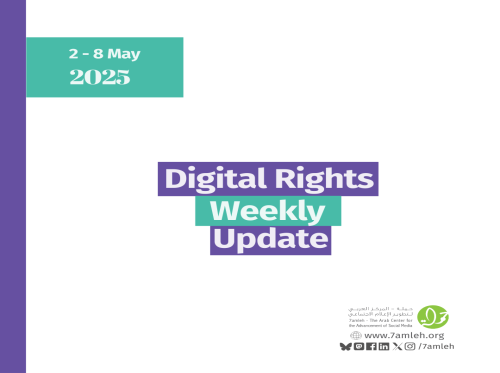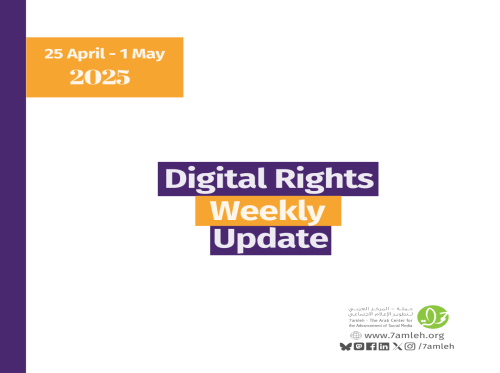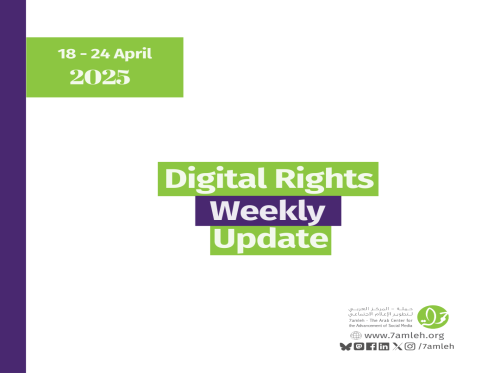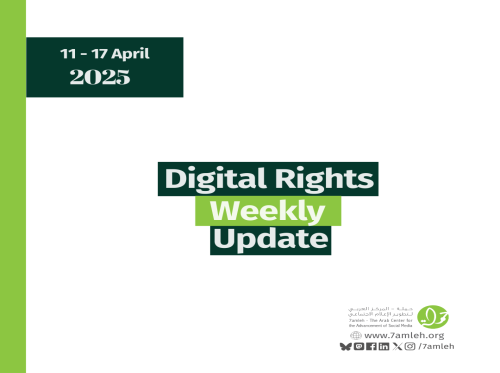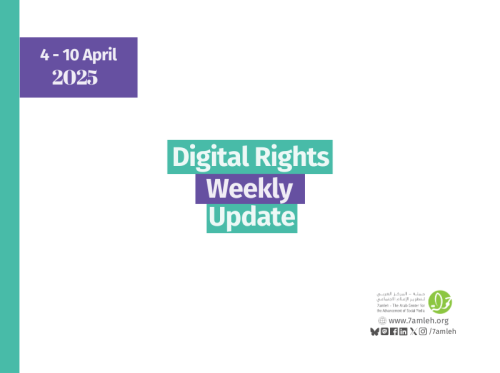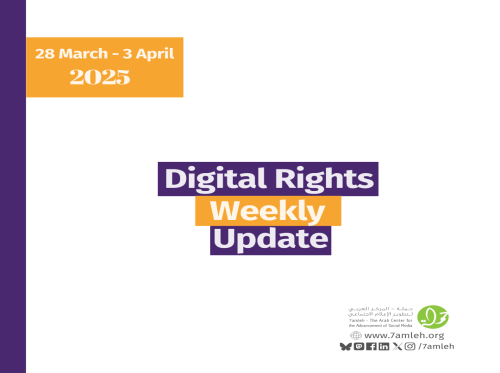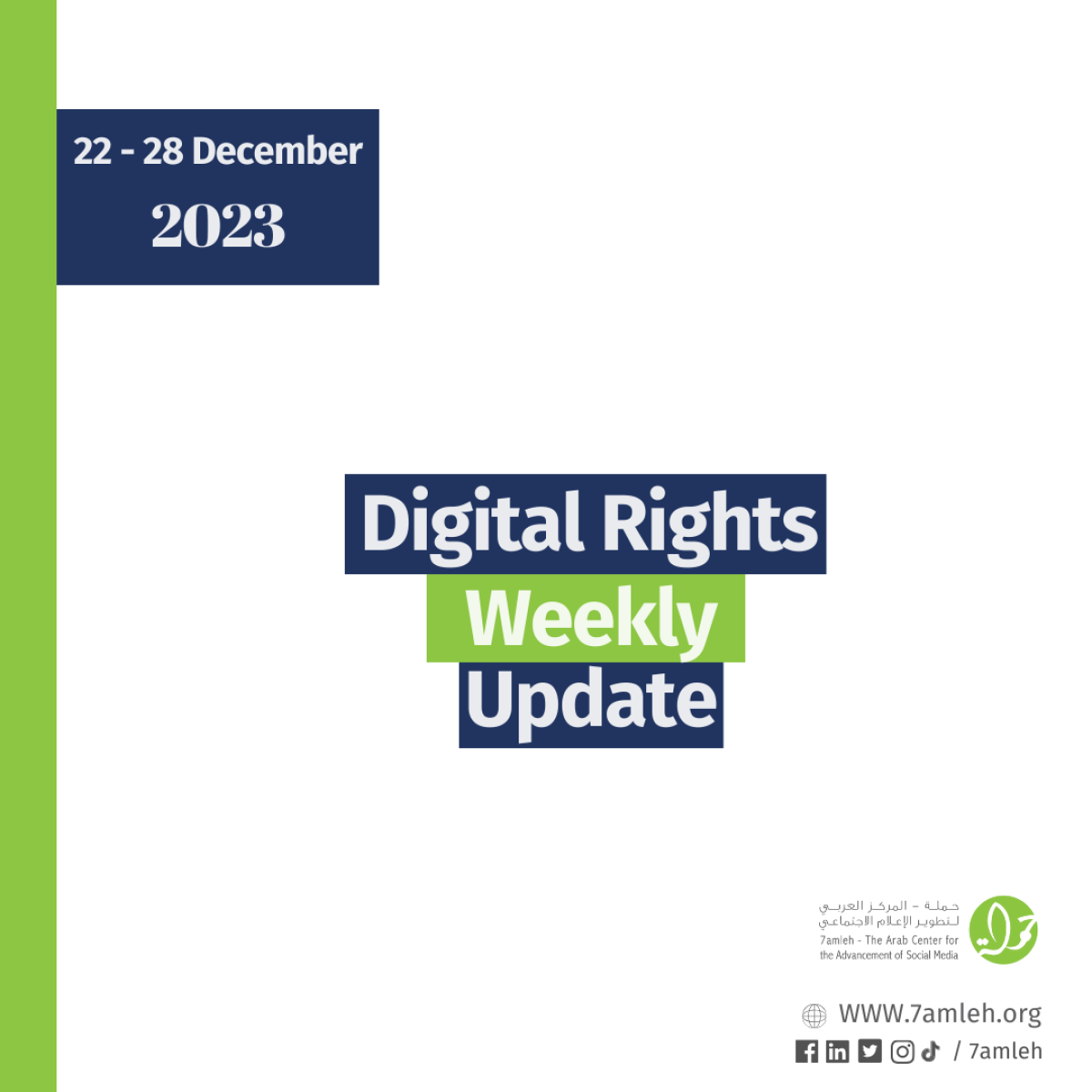
1.
A Guide to Combating Digital Gender-Based Violence (English)
7amleh
7amleh - The Arab Center for the Advancement of Social Media, published “A Guide to Combating Digital Gender-Based Violence,” the guide is designed to address gender-based violence in the digital realm and to explore strategies for combating and confronting it, as it stands as one of the most widespread forms of harmful practices in the digital space.
2
Meta’s Broken Promises (English)
HRW
Meta’s policies and practices have been silencing voices in support of Palestine and Palestinian human rights on Instagram and Facebook in a wave of heightened censorship of social media amid the hostilities between Israeli forces and Palestinian armed groups that began on October 7, 2023. This systemic online censorship has risen against the backdrop of unprecedented violence, including an estimated 1,200 people killed in Israel, largely in the Hamas-led attack on October 7, and over 18,000 Palestinians killed as of December 14, largely as a result of intense Israeli bombardment.
3.
Instagram 'suspends' US activist Shaun King amid censorship of pro-Palestine accounts (English)
The newarab
US activist Shaun King claimed Monday that his account on social media platform Instagram had been suspended because of his posts in support of Palestine. On Monday afternoon, the link to King's Instagram page read: "Sorry, this page isn't available. The link you followed may be broken, or the page may have been removed." In a message shared through the Wissam Gaza account on the platform, King said he was "frustrated that Instagram has banned me for fighting for Palestine, and speaking up for the human rights and dignity of Palestinians". It remains unclear why Meta, the company that owns Instagram, removed King's account.
4.
From connection to contention: How AI curbs access to information (English)
AA
The story of misinformation in the age of social media is not just about false narratives, but sits at the intricate intersection of technology, corporate interests, and the global spread of information. Algorithms, emerging search engines, and artificial intelligence are taking control of information we are bombarded with daily. From selective filtering to outright censorship, they shape what is deemed acceptable on a global scale. To monitor how media outlets across the world disseminate information, Kalev Hannes Leetaru founded the GDELT Project in 1979. "Western companies are selecting the sources that they believe give an answer that's most aligned to the political values," Leetaru said in an interview with Anadolu.
5.
Watermelon Emoji: A Symbol of Palestinian Protest on Social Media (English)
Gvwire
The watermelon emoji has become a symbol of Palestinian protest on social media, as the humanitarian crisis in Gaza continues to escalate. The Jewish Voice for Peace, an organization that has been coordinating large-scale protests, has been using the watermelon emoji in its social media posts to call for action. The watermelon, a staple of Palestinian cuisine, has a long history of representing Palestinian protest. Watermelons have been grown in the Middle East for centuries and are a common feature in Levantine cuisines. In Palestinian culture, the fruit is often used in salads and other dishes. During the Six-Day War in 1967, the Israeli government banned the display of the Palestinian flag, leading to the watermelon becoming a symbol of protest. The colors of a sliced watermelon – red fruit, green-and-white rind, and black seeds – match those of the Palestinian flag. Despite the ban on the Palestinian flag being lifted in 1993, the watermelon emoji, added to keyboards in 2015, has continued to be used as a symbol of Palestinian protest. The emoji is often used on social media platforms like TikTok and Instagram to avoid algorithmic censorship or blocking filters.
Related Articles
Subscribe to Our Email Alerts
And stay updated with our latest activities, news, and publications!

